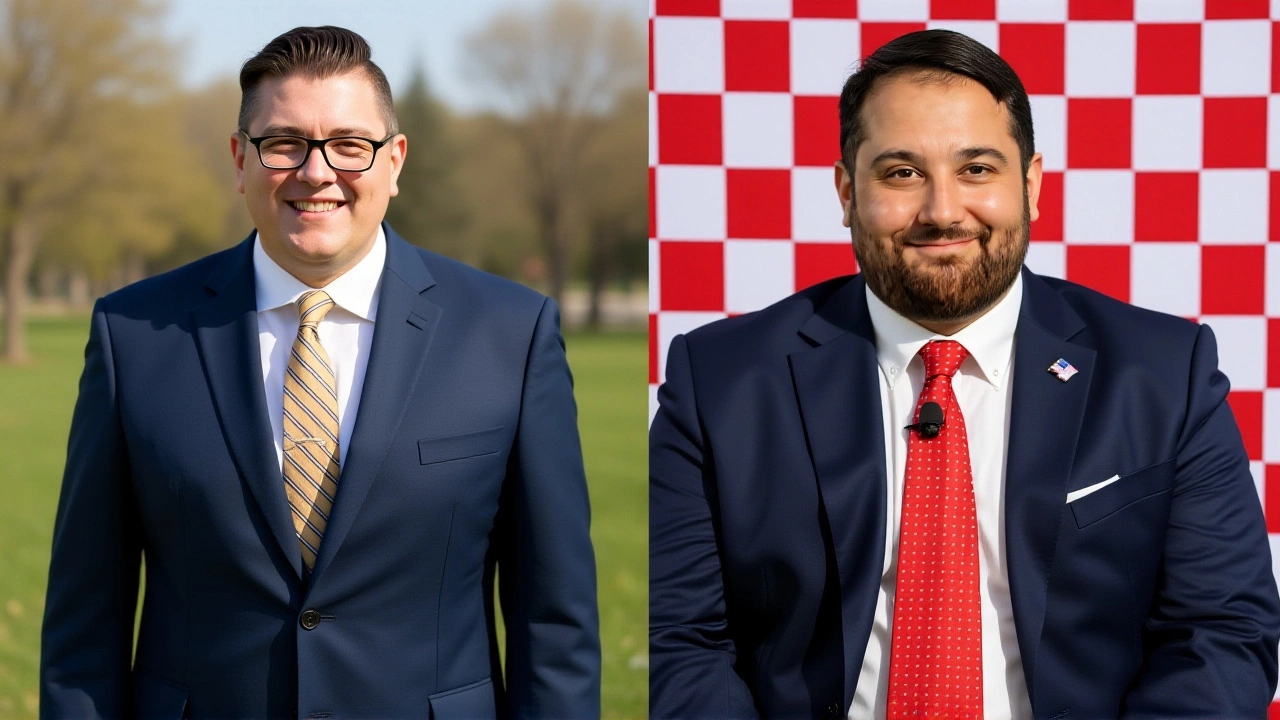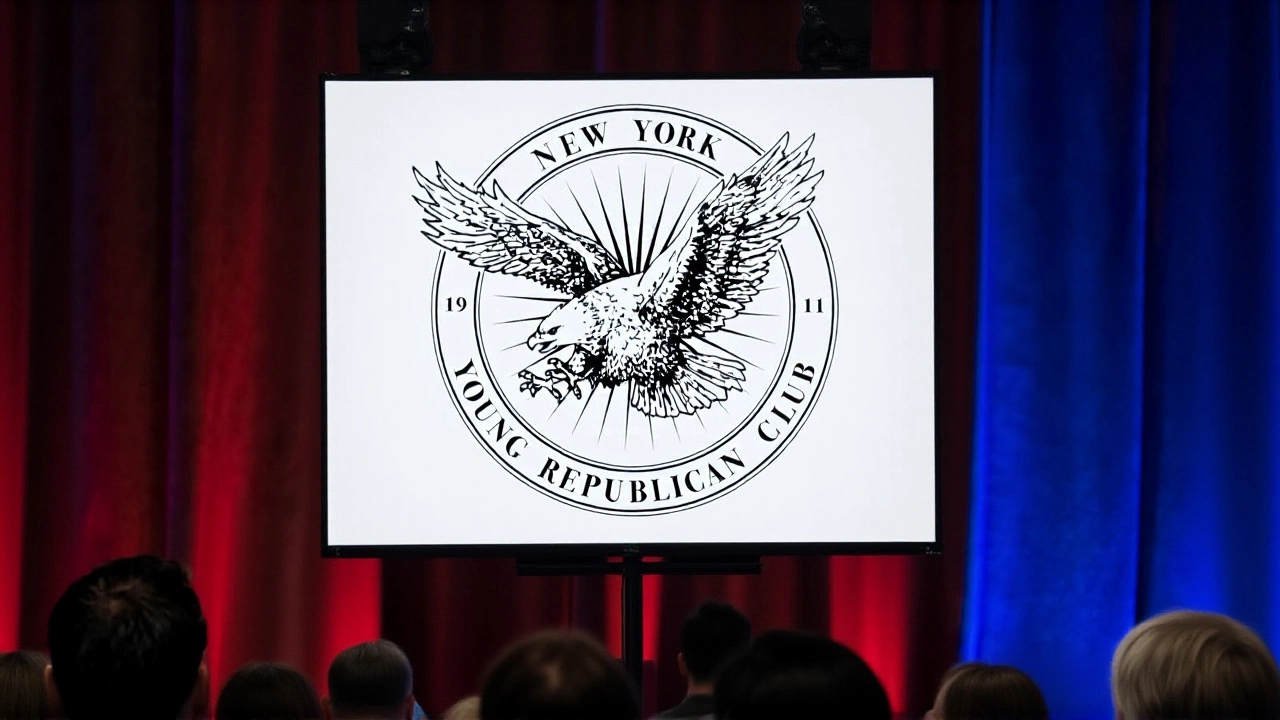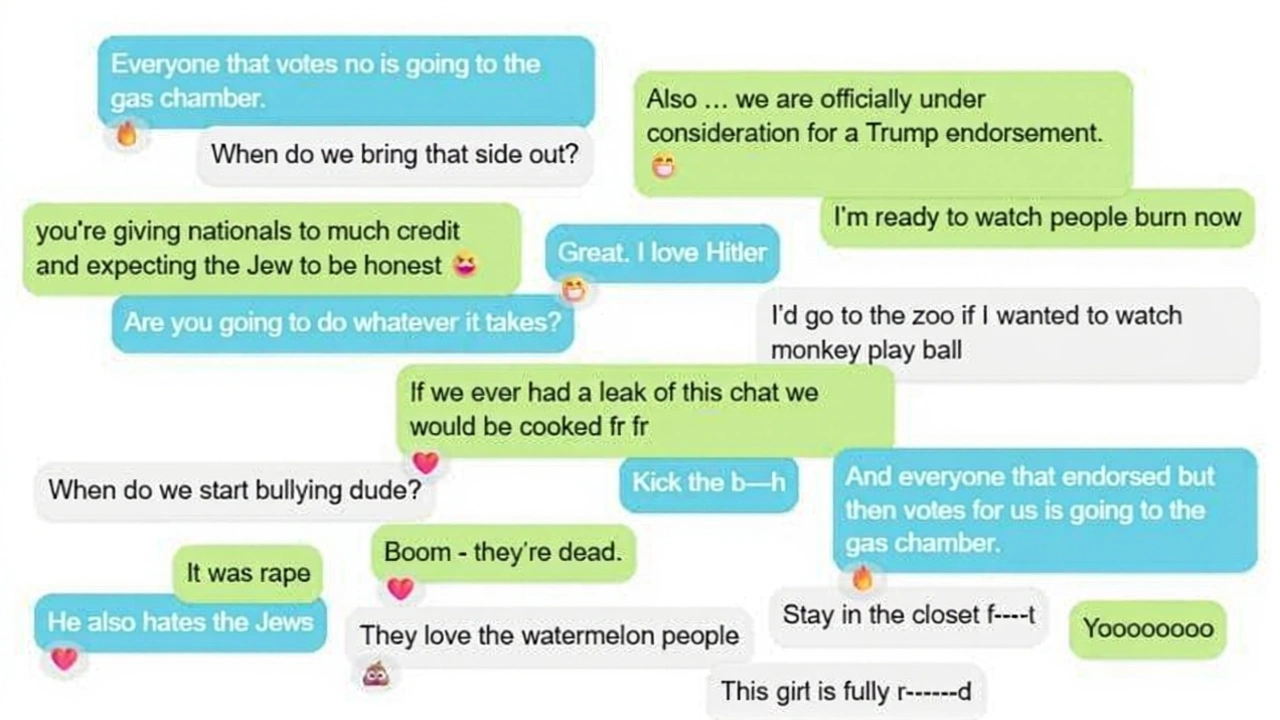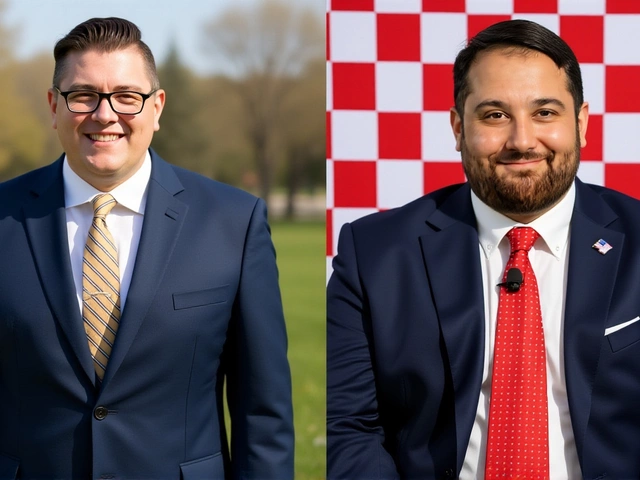Young Republicans’ Racist Text Scandal Sparks Nationwide Outcry

When William Hendrix, vice chair of Kansas Young Republicans sent a text that called Black people “monkeys” and “the watermelon people,” the internet went into overdrive. The remark was just one of dozens that surfaced from a private group chat of Young Republican officials spanning at least Kansas and New York. Within 24 hours of the leak, Chris Cillizza, The Chris Cillizza flagged the story on his Substack, quoting a Politico report that described threats of gas chambers, glorified rape, and repeated racial slurs. The fallout? A national firestorm that put the youthful wing of the GOP under an unwanted microscope.
What the leaked messages revealed
The chat, which was never meant for public eyes, contained language that would make most adults blush. In addition to Hendrix’s slurs, Bobby Walker, vice chair of New York State Young Republicans bragged that a rape was “epic,” while Peter Giunta, chair of the same organization, posted in June: “everyone that votes no is going to the gas chamber.” The messages also hinted at a broader mindset: participants discussed “putting political opponents in gas chambers,” mocked minorities as “the watermelon people,” and celebrated Republicans “who they believed support slavery.”
Altogether, the chat featured more than a dozen instances of the n‑word—spelled out as “n—ga” and “n—guh”—all from Hendrix alone. The language was not a one‑off slip; it read like a curated list of provocations meant to shock, according to the Politico analysis.
How the scandal unfolded
The first public glimpse came when a journalist from Politico obtained screenshots from an unnamed source and published them online. The article triggered a cascade of social‑media shares, with hashtags like #YoungRepublicansScandal trending within minutes. Chris Cillizza then amplified the story on his Substack, noting that anyone who “spent the last 24 hours on another planet” missed the biggest political drama of the day.
Because the group chat spanned multiple state chapters, the revelations forced the national leadership of the Young Republican movement to respond—though, as of now, the Young Republican National Federation has remained tight‑lipped, offering only a generic statement that it “takes allegations of hateful conduct seriously.”

Reactions from the party and the public
Republican officials at the state and national levels scrambled to distance themselves. In Topeka, the state GOP chair released a brief comment condemning “any form of racism” while promising an internal review. Across the aisle, Democrats seized the moment, with several members demanding an immediate investigation and calling for the removal of the implicated officers.
Grassroots activists, particularly those from minority communities, expressed a mix of anger and fatigue. “We’ve been told the GOP wants to be inclusive, but these messages prove otherwise,” said an organizer from the Kansas Civil Rights Coalition. Meanwhile, some conservative pundits tried to downplay the episode, arguing that a private group chat shouldn’t define the entire movement.
Why this matters for the GOP’s future
The Young Republicans scandal has resurfaced a lingering question: can the party attract a new generation if its youth wing tolerates extremist rhetoric? Political scientists point out that the Republican brand is increasingly linked with cultural battles, and incidents like this risk alienating moderate voters who might otherwise consider a GOP ticket.
Moreover, the episode arrives at a pivotal moment—just weeks before the midterm primaries in several swing districts. Candidates will likely be forced to address the controversy, either by denouncing the messages outright or by defending the “free‑speech” of a fringe group.

Next steps and possible repercussions
Legal experts say that, unless the messages contain direct threats of violence, criminal charges are unlikely. However, party bylaws often allow for disciplinary action, and the national Young Republican committee could suspend or expel the offending members.
Both Hendrix and Walker have not publicly responded, and Giunta’s current status within the New York chapter remains unclear. The coming weeks will reveal whether the organization opts for a public purge, an internal training overhaul, or simply hopes the story fades from headlines.
For now, the incident serves as a stark reminder that private digital chatter can become public ammunition, reshaping political narratives faster than any campaign ad.
- Key figures: William Hendrix (Kansas), Bobby Walker (New York), Peter Giunta (New York).
- Content: racial slurs, threats of gas chambers, glorified rape.
- Source: Politico report, amplified by Chris Cillizza’s Substack.
- Organizations involved: Kansas Young Republicans, New York State Young Republicans, Young Republican National Federation.
- Potential outcomes: internal investigations, possible expulsions, broader GOP image challenges.
Frequently Asked Questions
What exactly did William Hendrix say in the leaked messages?
Hendrix used a racial slur—spelled as “n—ga” and “n—guh”—more than twelve times, and he referred to Black people as “monkeys” and “the watermelon people.” The language was part of a broader rant that also mentioned putting opponents in gas chambers.
How has the Young Republican National Federation responded?
The national federation has issued a brief statement saying it “takes allegations of hateful conduct seriously” but has not provided specifics about investigations or possible sanctions.
Could the leaked texts lead to legal action?
Legal experts note that without direct threats or incitement to imminent violence, criminal prosecution is unlikely. However, the party’s internal rules could result in expulsions or other disciplinary measures.
What impact might this scandal have on upcoming elections?
The controversy arrives just before several midterm primaries, forcing candidates to either condemn the statements or risk being associated with extremist rhetoric, which could sway moderate voters.
Has any member of the Young Republicans publicly apologized?
As of now, neither Hendrix, Walker nor Giunta have issued a public apology or statement addressing the leaked messages.
